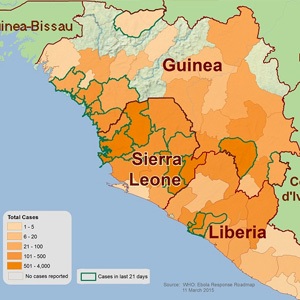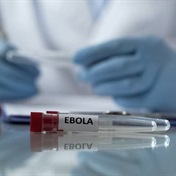
The Ebola epidemic that has ravaged West Africa appears to have brought the practice of female genital mutilation (FGM) to a near halt in Sierra Leone, a British minister said on Friday.
International development minister Lindsay Northover urged donors, aid agencies, campaigners and others to capitalize on the opportunity to make the break permanent.
"We are aware that at the moment with the Ebola crisis ... cutting has temporarily stopped," Northover said.
"We have to seize this opportunity and see if we can move forward and end FGM," she told a conference on FGM in London.
"I've talked to the head of DFID (Department for International Development) in Sierra Leone to see what she can do to build partnerships very, very rapidly to see if we can change attitudes."
She said her counterparts at the U.S. development agency USAID were making a similar push in Liberia where the ancient and deeply entrenched practice also appears to have stopped.
Read: Female genital mutilation still rife in Africa
Female genital mutilation common in Sierra Leone
Ebola, which is spread through infected bodily fluids, has killed more than 10,200 people - mostly in Sierra Leone, Liberia and Guinea.
FGM involves the partial or total removal of the external genitalia and is often carried out in mass initiation ceremonies with many girls cut using the same blade.
The practice is legal in Sierra Leone but the government has introduced fines for FGM as part of its efforts to stamp out Ebola.
It has also imposed restrictions on travel and gatherings which would prevent people congregating for the festivals that accompany cutting ceremonies.
FGM affects an estimated 140 million girls and women across a swathe of Africa and parts of the Middle East and Asia. In Sierra Leone some 88 percent of girls and women have been cut.
Communities which practise FGM see the ritual as a way of keeping girls pure and a gateway to marriage.
But Northover called FGM "one of the most extreme manifestations of gender inequality".
"It's a human rights violation that can result in a lifetime of physical, psychological and emotional suffering," she added.
Britain has pledged to help eradicate FGM globally within a generation.
However campaigners say it is difficult to tackle FGM in Sierra Leone and Liberia because the ritual is overseen by powerful secret societies which wield strong social clout. Girls are told they will die if they talk about being cut.
Helen Seeger, an aid worker with Plan UK who returned from Sierra Leone last month, said there was concern that girls who had not been cut this year would be cut next year.
But "the fact we have started to engage and have more access to secret societies means we have perhaps got a window of opportunity," she said by phone.
Read more:
ISIS orders genital mutilation for Iraqi women
Britain pledges £35 million to end genital mutilation




 Publications
Publications
 Partners
Partners















